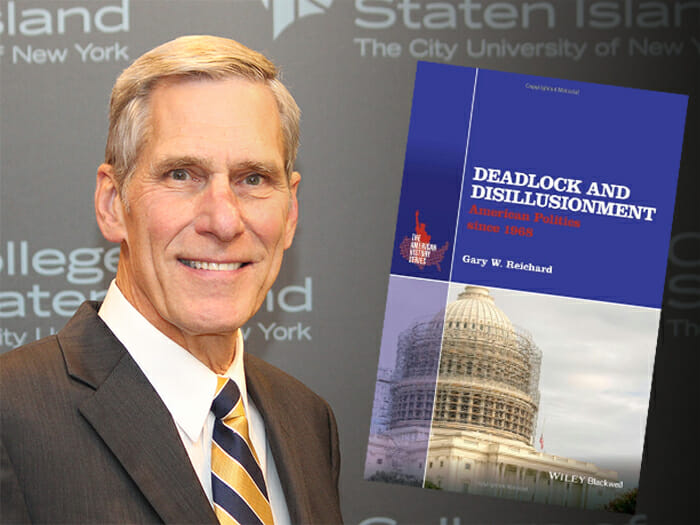The Kurtz Foundation recently established a Professorship at the College of Staten Island (CSI,) named the Leonard and Esther Kurtz Term Professorship.
The Leonard and Esther Kurtz Professorship provides two continuous years of funding in support of the innovative polymer and biopolymer chemistry programs at CSI. Dr. Fred Naider, Distinguished Professor of Chemistry, is the College’s first recipient of this prestigious Professorship. The funding comes at a crucial time, providing the additional resources needed to further distinguish the international reputation of CSI’s research.
The Kurtz Foundation, located in Farmingdale, New York, is a strong supporter of the health sciences, education and the arts. It had assets of nearly one million dollars in the year 2000, and is a highly selective independent foundation that provides general and operating support to qualified organizations. Grants for the year 2000 include the University of California at San Diego, the Mount Sinai Hospital and Medical Center, and the School of Medicine at Brown University, Providence, Rhode Island.
“Dr. Naider’s research and teaching are at the highest levels,” commented Dr. Marlene Springer, President of CSI, “and have helped CSI establish a reputation for excellence that ranks the polymer chemistry program among the best in the greater New York area.”
“We have been pleased to follow Dr. Naider’s career,” commented Robert J. Kurtz, M.D., President of the Kurtz Foundation, “his rise through the faculty ranks at the College of Staten Island, and his latest promotion to the Rank of Distinguished Professor at City University in the winter of 2000.”
Naider’s research is focused on the biological function of peptides (small chains of amino acids) and their role as nutrients and signaling molecules. More specifically, Naider investigates how peptides cross cell membranes, and how cells communicate by the use of peptide signals.
The research lab is also the site of Naider’s mentorship of postdoctoral fellows and Ph.D. students. Undergraduates benefit from Naider’s expertise as well, learning organic chemistry and biochemistry in preparation for their careers in medical technology, medicine, optometry, dentistry and the basic sciences.
“I have benefited from their fresh minds, their curiosity, and their thirst for knowledge,” explains Naider. “I hope they have benefited from my passion for peptides and yeast.”
During Naider’s 27-year career at CSI, his findings have appeared in 180-refereed articles and he has been awarded nearly $6 million in research grants.













